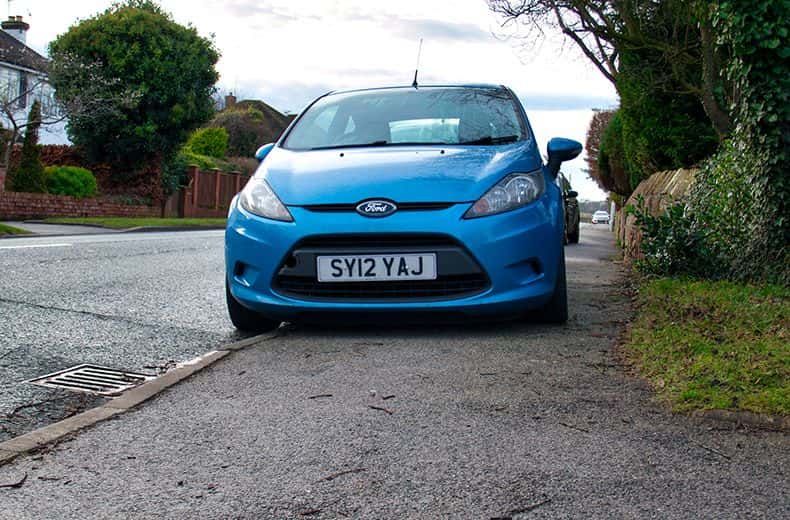The Department for Transport (DfT) announced they are considering plans to give local authorities more power to tackle the problem.
Parking on pavements is currently only banned in London, with no restrictions elsewhere in the country except for lorries.
Rule 244 of the Highway Code says: “You MUST NOT park partially or wholly on the pavement in London, and should not do so elsewhere unless signs permit it.”
Transport Secretary Grant Shapps said: “Vehicles parked on the pavement can cause very real difficulties for many pedestrians.
“That’s why I am taking action to make pavements safer and I will be launching a consultation to find a long-term solution for this complex issue.
“This will look at a variety of options – including giving local authorities extended powers to crack down on this behaviour.”

RAC sale – up to 33% off*
• Roadside cover from £5.29 a month†
• We get to most breakdowns in 60 mins or less
• Our patrols fix 4/5 breakdowns on the spot

RAC head of roads policy, Nicholas Lyes said: “Blocking pavements impacts most on those with disabilities and those pushing buggies and creates unnecessary danger for pedestrians.”
The announcement came in response to a report by the Commons’ Transport Select Committee last year, which called for a nationwide blanket ban on the “blight” of parking on pavements.
MPs were told that the worst cases of pavement parking were effectively trapping disabled, elderly and vulnerable people, making them “afraid to leave their homes”.
The cross-party group said blocked-off walkways were also making the issue of loneliness in Britain much worse.
Mr Lyes approved of the DfT’s plans to punish selfish parkers but pointed out that “outlawing pavement parking as a whole is more complex because not all streets in the UK are the same.”
He suggested that parking with a tyre on the kerb is often necessary on narrow streets to avoid restricting road access and can be done while allowing plenty of space for pedestrians.
He added: “Therefore better guidance and a definition of what is and isn’t appropriate would be a more practical solution, rather than an outright ban.”
- Parking guide: where you can and can’t park
- Parent and child parking bays – the law and who can use them
- My car has been clamped or towed – what should I do?
Huw Merriman who chairs the Commons’ Transport Select Committee praised the DfT’s response and welcomed the consultation on a ban.
“This Government has signalled an intent to finally deliver change. We now need a detailed timeframe from the Department for Transport to ensure this happens,” he said.
Merriman noted that the government promised to tackle pavement parking in 2015 with reviews failing to improve roadside conditions.
Do you think an outright ban on pavement parking is too extreme? Let us know your thoughts in the comments below.
Get 30 driving tips that will save you money
Running a car isn’t cheap, but there are some easy things you can do to keep your costs down. Get these tips and more useful driving articles sent straight to your inbox now.








